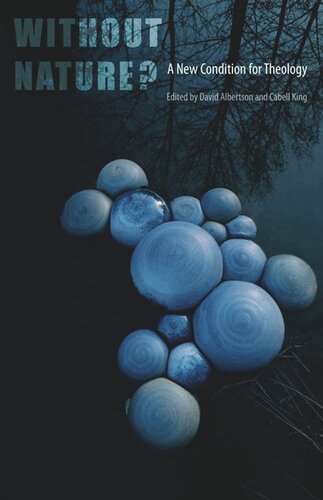

Most ebook files are in PDF format, so you can easily read them using various software such as Foxit Reader or directly on the Google Chrome browser.
Some ebook files are released by publishers in other formats such as .awz, .mobi, .epub, .fb2, etc. You may need to install specific software to read these formats on mobile/PC, such as Calibre.
Please read the tutorial at this link: https://ebookbell.com/faq
We offer FREE conversion to the popular formats you request; however, this may take some time. Therefore, right after payment, please email us, and we will try to provide the service as quickly as possible.
For some exceptional file formats or broken links (if any), please refrain from opening any disputes. Instead, email us first, and we will try to assist within a maximum of 6 hours.
EbookBell Team

4.4
42 reviewsDoes “nature” still exist? Common wisdom now acknowledges the malleability of nature, the complex reality that circumscribes and constitutes the human. Weather patterns, topographical contours, animal populations, and even our own genetic composition—all of which previously marked the boundary of human agency—now appear subject to our intervention. Some thinkers have suggested that nature has disappeared entirely and that we have entered a postnatural era; others note that nature is an ineradicable context for life. Christian theology, in particular, finds itself in an awkward position. Its Western traditions have long relied upon a static “nature” to express the dynamism of “grace,” making nature a foundational category within theology itself. This means that any theological inquiry into the changing face of nature must be reflexive and radically interdisciplinary. This book brings leading natural and social scientists into conversation with prominent Christian theologians and ethicists to wrestle collectively with difficult questions. Is nature undergoing fundamental change? What role does nature play in theological ethics? How might ethical deliberation proceed “without nature” in the future? What does the religious drive to transform human nature have to do with the technological quest to transcend human limits? Would the end of nature make grace less comprehensible?